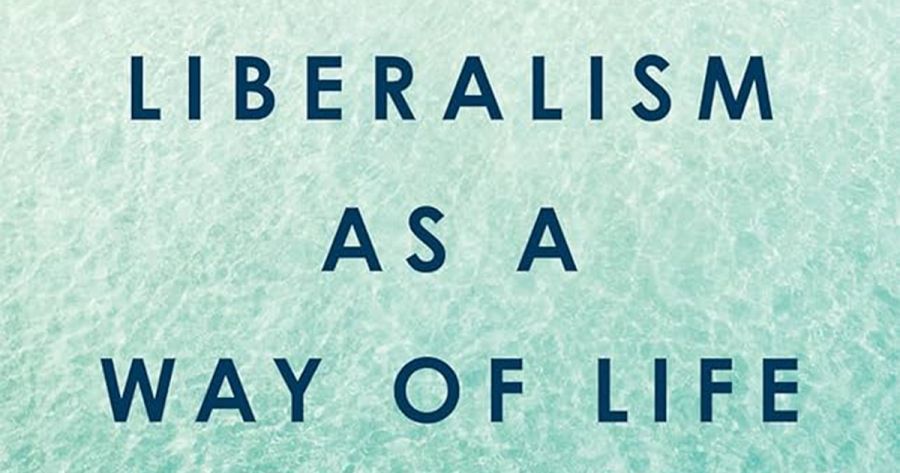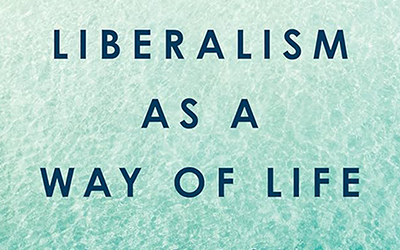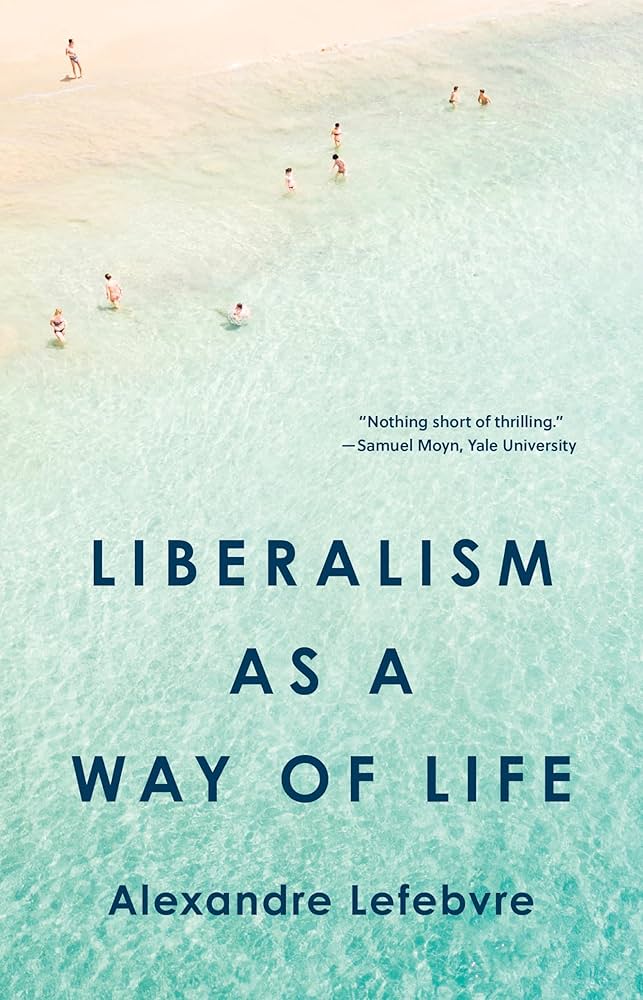
- Free Article: No
- Contents Category: Politics
- Review Article: Yes
- Article Title: Three cheers
- Article Subtitle: Liberal hope for anxious times
- Online Only: No
- Custom Highlight Text:
The year 1939 was not so very unlike this one. The United States was being torn apart by bitter political disagreements, and the unresolved social divisions and underlying disparities that had haunted the nation from birth were increasingly laid bare. Of these, racial inequality was perhaps most shameful: African American men, women, and children were forced to live a separate existence from that of their fellow citizens, whether due to de jure segregation in the South or the no less pernicious zoning ordinances that kept black families out of middle-class neighbourhoods in the North.
- Featured Image (400px * 250px):

- Alt Tag (Featured Image): Scott Stephens reviews ‘Liberalism as a Way of Life’ by Alexandre Lefebvre
- Book 1 Title: Liberalism as a Way of Life
- Book 1 Biblio: Princeton University Press, $34.99 pb, 285 pp
- Book 1 Cover Small (400 x 600):

- Book 1 Cover (800 x 1200):

- Book 1 Readings Link: https://www.readings.com.au/product/9780691267661/liberalism-as-a-way-of-life--alexandre-lefebvre--2024--9780691267661#rac:jokjjzr6ly9m
The distant thunder of war, meanwhile, served only to heighten these tensions. Politicians, pundits and public figures duly organised themselves into serried ranks on either side of the conflict in Europe, ignoring the earnest pleas of a visibly diminished president that ‘partisanship and selfishness be adjourned’ and ‘national unity be the thought that underlies all others’. For some, the emergence of a virulent strain of belligerent fascism posed a threat to America’s vital interests that could not be ignored. There were many, however, who looked across the Atlantic not so much with alarm as with envy. They saw the muscular chauvinism of European strongmen – Franco, Hitler, Mussolini – with their evident disdain for democratic constraints and their brazen appeal to a kind of Christian nationalism, as an attractive alternative to the ‘weak liberal State’ – as if Franklin D. Roosevelt’s own physical infirmity was emblematic of the feebleness of liberal democracy as such.
It wasn’t long before Nazism’s cultured admirers – journalists, intellectuals, senators, generals, philanthropists, industrialists – took to the airwaves and leapt into print, variously commending the political and economic benefits of an ‘intelligent fascism’ and urging the government to support Germany in its struggle on behalf of Christian civilisation. They performed Nazi salutes in public and established lucrative financial arrangements with Joseph Goebbels’s ministry of propaganda. They railed against the influx of immigrants at ‘America First’ rallies – in this case, Jewish migrants from Europe – and trivialised emerging reports of German atrocities.
It was at this moment of peak anti-democratic ferment, and with the United States staring into the abyss of yet another intercontinental war, that the philosopher John Dewey made a striking intervention. He, too, was horrified by what Hitler’s rise portended for the future of democracy, but for just this reason he insisted on the importance of building up America’s resistance to fascism’s demonic charms. He cautioned that mobilising all levels of national life in a war effort would leave its deeper divisions unaddressed – in effect papering over an underlying rot. In which case, what kind of democracy would emerge on the other side? Would it escape its brush with evil untainted? And yet, for Dewey, the task of strengthening the nation’s democratic culture was less a matter for the state than it was for its citizens. As he would write in October 1939: ‘To denounce [Nazism] for intolerance, cruelty and stimulation of hatred amounts to fostering insincerity if, in our personal relations to other persons, if, in our daily walk and conversation, we are moved by racial, color or other class prejudice.’ He went on: ‘Intolerance, abuse, calling of names because of differences of opinion about religion or politics or business, as well as because of differences of race, color, wealth or degree of culture are treason to the democratic way of life.’
The threat to American democracy, Dewey was convinced, does not merely reside in the menace of bellicose nationalism without or inflamed illiberal passions within. It is fully as present in an unpreparedness to attend to those day-by-day practices of conversation, cooperation, and common decency, and the failure to promote their ‘contagious diffusion in every phase of our common life’. Accordingly, the way to counteract the allure of illiberalism is not by matching its stridency, but by intentionally cultivating the quotidian joys of democratic interaction and comity. As he put it, ‘democracy is a reality only as it is indeed a commonplace of living’.
In the years since Donald Trump became president, many of us have grown accustomed to the steady stream of pronouncements of liberalism’s imminent demise, nervous commentary about the fragility of our democratic norms, and doomsaying over the resurgence of far-right parties in Europe. Ritual displays of liberal panic at the strength and cunning of the forces of illiberalism are, in some circles, now almost de rigueur. Few of its advocates seem prepared to defend liberalism on its own merits, resorting instead to dire prophecies of what will transpire in the event of, say, a second Trump presidency. In this respect, there could hardly be a more fitting symbol of liberalism’s parlous state than the image of a frail, faltering Joe Biden entreating voters: ‘Don’t compare me to the Almighty. Compare me to the alternative.’ Even after Biden withdrew his bid for re-election, the sudden upsurge of enthusiasm surrounding Kamala Harris more closely resembled relief than it did renewed liberal self-confidence.
For all the similarities between Dewey’s time and our own, it is hard not to be struck by the conspicuous absence of his optimism concerning the redemptive possibilities of ‘free communication’ and ‘amicable cooperation’. There is, admittedly, every reason to be pessimistic about public debate and the media ecosystem in which it takes place. And the democratic virtues of tolerance, mutual accommodation, and principled compromise have rarely seemed further out of reach. Dewey might have said the same. But without an abiding faith in the significance of everyday interactions with our fellow citizens, and in the absence of a proper sense of the value of the understated virtues that sustain democratic life – such as decency, sincerity, modesty, generosity, patience, humility, and cheerfulness – societies like ours cannot hope to be more than liberal in name only.
This is what makes Alexandre Lefebvre’s Liberalism as a Way of Life an indispensable antidote to our prevailing condition of fashionable pessimism. Lefebvre – Professor of Politics and Philosophy at the University of Sydney – is not interested in defending liberalism against its modern detractors; nor does he attempt to mount a case for political liberalism as a normative theory that ought to command our assent.
Instead, he demonstrates that liberalism is the social order we already inhabit; its values permeate our lives and colour our conception of what is just and good, of what we owe one another and what we might expect for ourselves. Liberalism is less a doctrine than it is the air we breathe; or, to use Lefebvre’s preferred metaphor: ‘Love it or hate it, we all swim – we positively marinate – in liberal waters.’ John Rawls would say as much, though not so jauntily, in a series of lectures bearing Dewey’s name. What commends the liberal conception of society Rawls articulated in his monumental A Theory of Justice (1971) is ‘its congruence with our deeper understanding of ourselves and our aspirations’ – the fact that, ‘given our history and the traditions embedded in our public life’, liberalism is quite simply ‘the most reasonable doctrine for us’.
Thus liberated from the need to persuade the unconvinced of liberalism’s superiority to its rivals, Lefebvre is free to adopt an infectiously cheery tone which at once refuses the earnest handwringing we have come to expect from liberalism’s anxious apologists, and reflects his specific understanding of the nature of the crisis confronting liberal democracy. The problem is not that liberals need to do a better job ‘promoting their values’, for in a fundamental sense the values of fairness, equality, reciprocity, and solidarity are part of our ‘background culture’. In this respect, he argues, the liberal revolution has already been waged and its decisive battle already won. Lefebvre calls it the ‘horizontalization of morality’. It stems from the conviction that the harm we do to others is inherently wrong – wrong in and of itself, not because it offends divine law – and goes on to reconceive the range of our social and moral obligations in terms of this ‘radically horizontal vision’.
The real challenge is how to live into the achievements of this moral revolution. As Lefebvre insists: ‘a genuinely liberal way of life, along with its felicities, does not come automatically from living or even having been raised in liberal democracy. It takes work and must be cultivated by the individual themselves.’ It could be said that this is precisely what Rawls attempts in A Theory of Justice, as his elaboration moves from the ‘concept of justice’ and its constitutive institutions to the ‘just sentiments’ whereby human beings make justice a moral reality in their daily interactions. But in a virtuosic manoeuvre, Lefebvre instead enlists the French philosopher and ancient historian Pierre Hadot, permitting him to articulate what he calls a series of spiritual exercises – not in order to direct the soul toward God or ‘the Good’, but to rightly order the dispositions and habits of speech of citizens toward ‘others as equal moral persons’. So, in Lefebvre’s hands, developing the liberal virtues of impartiality and autonomy can help me move ‘outside myself and be a little less gripped by the me-ness of me’. Practicing reflective equilibrium can produce ‘a spirit of gentleness’, enabling us to ‘see weakness and difference in ourselves’ which we can then ‘extend … to others’. Engaging in public reason at once nurtures the bonds of ‘civic friendship’ and helps us to ‘unlearn the ugliest affects and affectations of our polarized culture’.
Alexandre Lefebvre’s wager is that liberalism ‘has the moral depth and spiritual range to redeem everyday life’. John Dewey would have offered his hearty democratic assent. If we are to have any chance of navigating a way through the dire straits in which we find ourselves, we’d better hope they’re right.


Comments powered by CComment